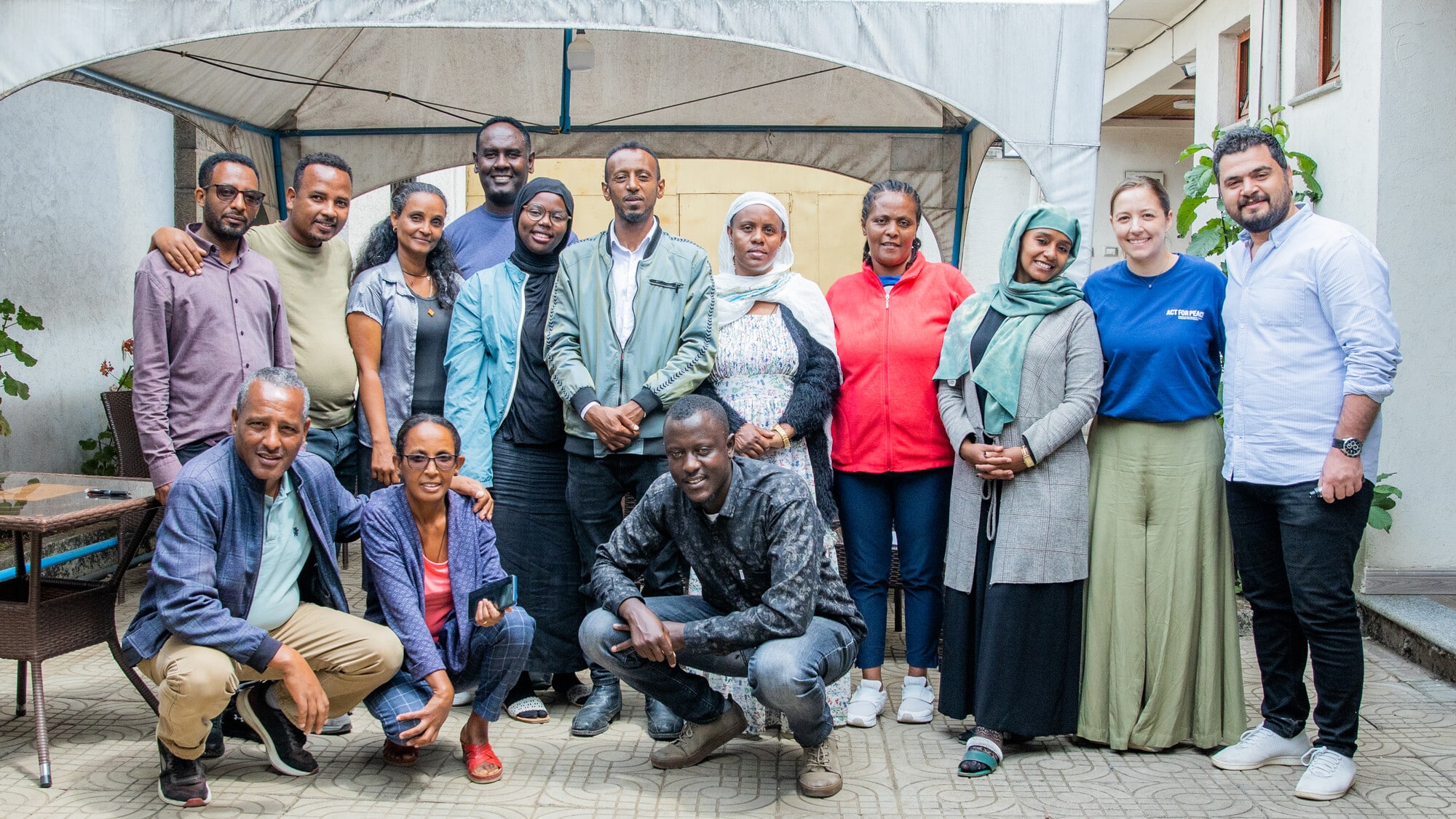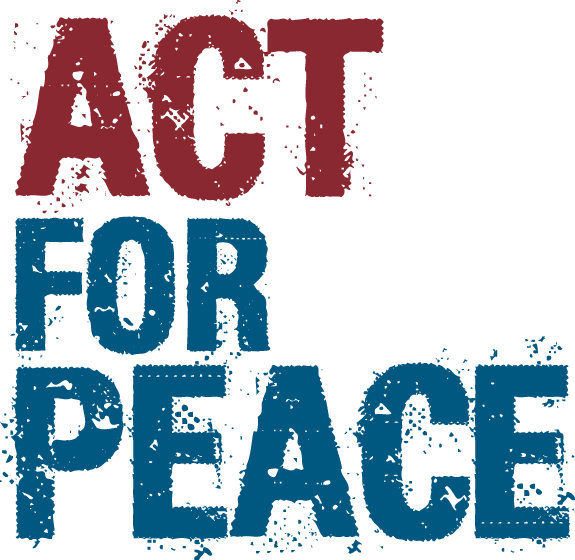With almost 123 million people forcibly displaced by conflict and violence around the world (OCHA Global Humanitarian Overview 2025), a unified approach to the global displacement crisis is desperately needed.
Act for Peace is committed to standing with people displaced by conflict and disaster because we wholeheartedly believe that together, we are stronger. We passionately build solidarity through long term partnerships and a locally led approach.
We know creating lasting positive change happens with people, not to people, so we work side-by-side with communities to shape solutions together – driven for the community, by the community.
Content Lead, Aimée Keay, caught up with Act for Peace International Partnerships and Programs Manager, Aletia Dundas, to discuss why being locally led is so important.
What does it mean to be “locally led”?
To me, it means that our partners and the people they serve set their own agendas and guide solutions. They decide the direction of projects and are the leaders in planning and carrying out project activities, monitoring ongoing progress and evaluating impact.
For our partners, the idea is that people affected by displacement are at the centre of decision making and actions to address displacement.
Why is being locally led so important?
Our partners know their situation best.
We need to trust in their leadership because they know their context and they are best placed to respond.
If our partners and those they seek to serve are active participants and leaders in their own journey, then the program they lead is more likely to succeed.
In the case of protracted refugee situations, refugee led initiatives provide the best solutions to problems. Act for Peace strives for meaningful participation of refugees.
What’s so special about Walking the Talk in terms of locally led partnerships?
Walking the Talk (WtT) is a global project that involves all our partners in activities that challenge power dynamics and recognise the strengths of people affected by displacement.
We’ve facilitated mutual learning sessions for us and our partners in transformative safeguarding, disability inclusion and accountability to affected populations.
We also facilitated cross learning between two partners in Ethiopia and Jordan in the Graduation out of Poverty approach.
We’ve enabled our partner in Bangladesh to tell their story of success in a pilot project helping communities to anticipate emergencies at the Regional Humanitarian Partnership Week (RHPW) in Bangkok on 11th December 2024.

We’ve supported several partners to prepare funding proposals where they are the lead organisation, and we’ve co-produced research together with refugee led networks.
WtT offers our partner organisations opportunities to grow outside of their current programs. WtT enables cross learning, strengthening networks and opportunities to pilot innovative approaches.
Partners have spoken about the impact of these opportunities and how they influence their work going forward.
As an anonymous participant on the WtT learning event, said “reflection and learning events are often a good way to allow an organisation or individual to monitor progress, adjust goals, and evaluate outcomes.
Also, by reflecting on project process, one can enhance critical thinking, creativity, and communication skills, as well as your self -awareness and confidence.”
Each partner organisation is unique and can participate in different ways through WtT to enhance their own organisational knowledge bank and broaden their experience, consolidating their own expertise to leverage into the future.
Act for Peace works in solidarity with our partners. How does Walking the Talk achieve this?
Being in solidarity also means recognising our partners’ leadership and strengths and stepping back so that they can take the floor and speak about their experiences.
The RHPW is a good example of this because the whole event is organised by one of our partners and attended by humanitarian actors from Asia and the Pacific.
Our other partners who we supported to attend have the opportunity to network, hear about the experiences of others in similar situations, and learn about innovative models being piloted in the region.
Act for Peace works in solidarity with our partners. How does Walking the Talk achieve this?
Being in solidarity also means recognising our partners’ leadership and strengths and stepping back so that they can take the floor and speak about their experiences.
The RHPW is a good example of this because the whole event is organised by one of our partners and attended by humanitarian actors from Asia and the Pacific.
Our other partners who we supported to attend have the opportunity to network, hear about the experiences of others in similar situations, and learn about innovative models being piloted in the region.
What’s your hope for the future of this program and the partnerships involved?
We need to recognise our partners’ existing capacity and provide opportunities for those strengths to shine.
My hope is that in the future the model of working will be more reciprocal and mutual. I imagine that there will be more learning between partners.
For example, our partner in Pakistan, CWSA has offered to provide accountability to affected populations and safeguarding training to our other partners. Our partner in Bangladesh, Christian Aid, has already provided advice to our partner in the Philippines, NCCP, on Anticipatory Action, and our partner in Jordan, DSPR, was able to share insights about the Graduation Approach with our partner in Ethiopia, DICAC.
In providing feedback on the learning experience, one of the DICAC staff said, “The practical experience you shared with us is inspiring the Tesfa team for future commitment and implementation.”
